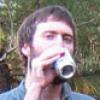Jefferson Airplane's Jorma Kaukonen Digs Into His Roots
Sunday, Mar. 1 @ The Foundry

Photo Credit: Scotty Hall
It's difficult to peg Jorma Kaukonen. The guitarist learned traditional folk music as a youngster growing up in Washington, D.C. In his college years, he was one of the pioneering rock musicians of the 1960s West Coast scene. He's a member of the Rock and Roll Hall of Fame, yet he prefers to teach cool guitar licks to students at a rustic music camp.
In the world of popular music, Kaukonen is best known for his association with legendary San Francisco acts Jefferson Airplane and Hot Tuna, but he's since made his living for years as a solo artist and gracious collaborator based out of the sprawling, 119-acre Fur Peace Ranch and camp in hilly southeast Ohio.
At 74, Kaukonen isn’t slowing down. This year, he took another step ahead in his colorful career, with the release of a brand-new studio album, Ain't in No Hurry, issued on Red House Records. The 11-song collection displays sharp technique and gentle touch on new and old originals and a few renditions of gems by the Carter Family, Rudy Vallée, Woody Guthrie and others.
Fifty years ago, Kaukonen was in the right place at the right time. As a teen in the late ‘50s, he partnered with fellow musician and D.C. pal Jack Casady. The two formed a group called the Triumphs, which dabbled in blues and pop styles. Soon after, Kaukonen made a move to Antioch College in Ohio, where he furthered his technique, picking up on the intricate fingerpicking style of playing.
After a break from school and a summer spent traveling, he landed at the University of Santa Clara, just south of San Francisco, in 1962. The burgeoning S.F. music scene was bustling with young, progressive, experimental songwriters and artists; psychedelia was seeping heavily into the traditional stylings of the time.
Kaukonen played lead guitar with Janis Joplin in 1964 and '65 before luring Casady out west and forming the first version of Jefferson Airplane with vocalist Marty Balin, singer and guitarist Paul Kantner, singer Signe Anderson and guitarist and drummer Skip Spence. They named themselves after one of Kaukonen’s favorite old bluesmen, Blind Lemon Jefferson.
With new drummer Spencer Dryden and raucous vocalist Grace Slick on board, Jefferson Airplane went on to help lead the psych-rock movement in California and across the U.S. Their groundbreaking 1967 album, Surrealistic Pillow, and its two 1968 follow-ups, After Bathing at Baxter’s and Crown of Creation, showcased Kaukonen’s unique guitar skills.
In 1970, Kaukonen and Casady formed Hot Tuna, an acoustic-based, jam-oriented spinoff that gradually became Kaukonen's main vehicle to explore his acoustic roots and fingerpicking skills. After Jefferson Airplane's first major split in 1973, Hot Tuna released a series of dynamic, soulful studio albums.
Kaukonen delved into an independent solo career in the mid-1970s—one that still bounces along today. With Casady, mandolinist Barry Mitterhoff, producer and guitarist Larry Campbell, vocalist Teresa Williams and the rhythm section of Myron Hart and Justin Guip on board, Ain't In No Hurry reflects Kaukonen’s earliest influences, as well his latest forays into early-20th Century roots music.
The slow-tempo swing beat and little lazy-sounding fiddle enhance the chilled-out mood of "Nobody Knows You When You're Down and Out." The title track flows with a sturdy, gentle rhythm, replete with blues riffs and Campbell's beautiful pedal steel swells.
There are a few surprisingly upbeat moments. The funky, mid-tempo "The Other Side of the Mountain" and the rockin' "Bar Room Crystal Ball" stand out. Mostly, though, the tone and mood tends to lean toward the tender and melancholic, as with the softly sung ballad "In My Dreams.”
Above all, Kaukonen sounds like a confident singer-songwriter, a musician with the same sense of flexibility, feel and vigor as that young man who ventured from D.C. to the wild West more than 50 years ago.
WHO: Jorma Kaukonen
WHERE: The Foundry
WHEN: Sunday, Mar. 1, 7:30 p.m.
HOW MUCH: $25 (adv.), $30 (door)
More by T. Ballard Lesemann
-

The Busy, Productive Hiatus of Je Suis France
Friday, Oct. 20 @ Caledonia Lounge
-

The Producers, Casper and the Cookies
Thursday, June 9 @ The Foundry
-

The Claypool Lennon Delirium, Chicano Batman
Tuesday, June 7 @ Georgia Theatre









comments